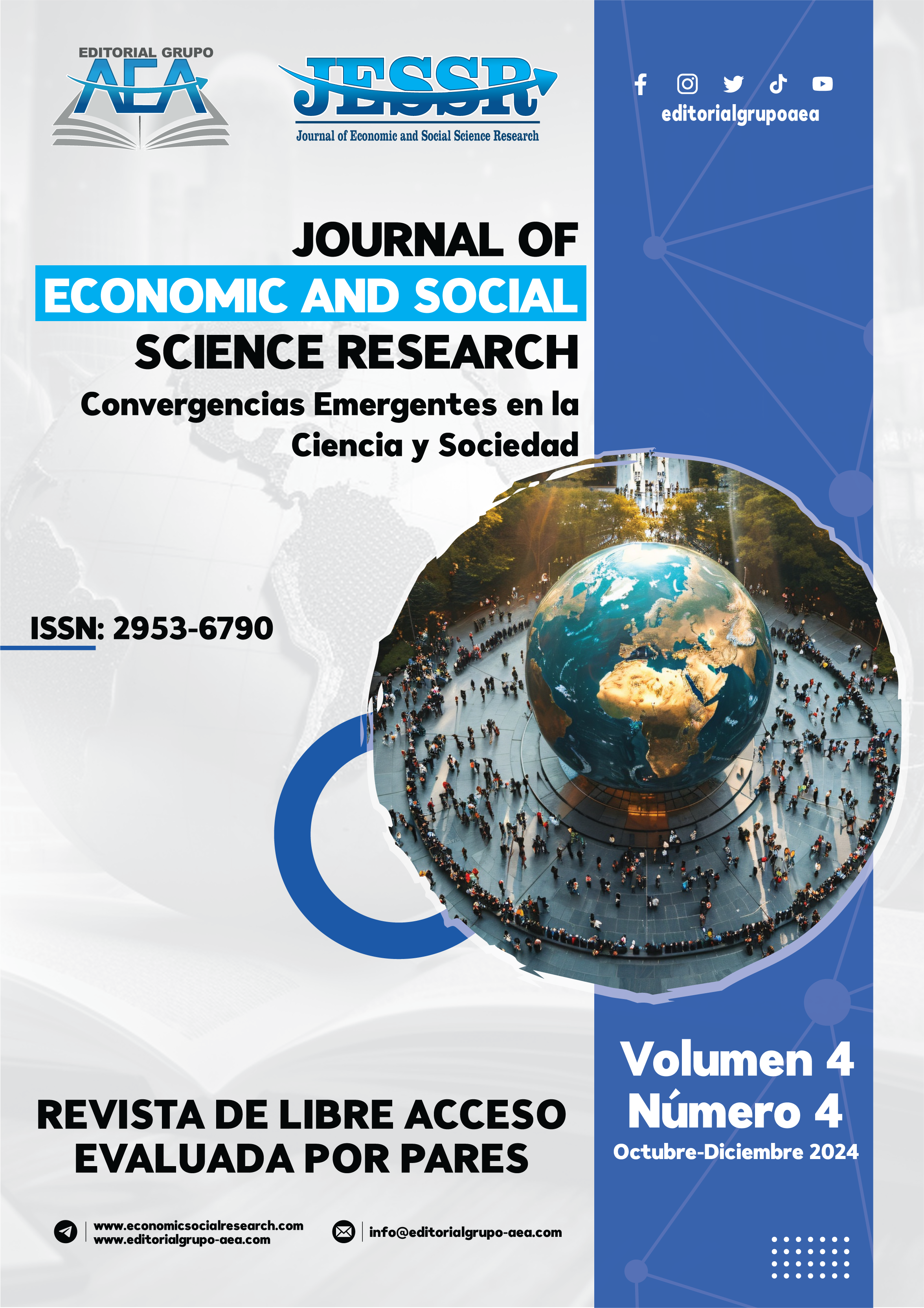The Future of Learning: Preparing Elementary Students for the Digital World
Main Article Content
Abstract
The article addresses the integration of technology in primary education, highlighting its relevance in preparing students for the digital world. The study, based on a qualitative literature review, analyzes the challenges and opportunities of incorporating technological tools in learning. The main findings reveal that continuous teacher training is essential for an effective adoption of technology, as many educators lack the necessary competencies for its pedagogical integration. In addition, significant barriers to equitable access to devices and connectivity persist, especially in low-income communities. The research also points to the benefits of gamification and personalized learning to improve student motivation and engagement. However, difficulties related to data security and sustainability of technology initiatives are discussed. In conclusion, to maximize the impact of technology in education, a comprehensive approach is needed that addresses teacher training, equity in access and curricular updating, ensuring an inclusive and resilient educational environment.
Downloads
Article Details
Section

This work is licensed under a Creative Commons Attribution-NonCommercial 4.0 International License.
How to Cite
References
Boné-Andrade, M. F. (2023). Inclusión Digital y Acceso a Tecnologías de la Información en Zonas Rurales de Ecuador. Revista Científica Zambos, 2(2), 1-16. https://doi.org/10.69484/rcz/v2/n2/40
Fütterer, T., Scheiter, K., Cheng, X., & Stürmer, K. (2022). Quality beats frequency? Investigating students’ effort in learning when introducing technology in classrooms. Contemporary Educational Psychology, 69, 102042. https://doi.org/10.1016/j.cedpsych.2022.102042
García-Peña, V. R. (2023). Desarrollo y Uso de Aplicaciones Móviles en el Contexto Ecuatoriano. Revista Científica Zambos, 2(3), 1-15. https://doi.org/10.69484/rcz/v2/n3/46
Hamadi, M., El-Den, J., Azam, S., & Sriratanaviriyakul, N. (2022). Integrating social media as cooperative learning tool in higher education classrooms: An empirical study. Journal of King Saud University - Computer and Information Sciences, 34(6), 3722–3731. https://doi.org/10.1016/j.jksuci.2020.12.007
Herrera-Sánchez, M. J., Casanova-Villalba, C. I., Bravo Bravo, I. F., & Barba Mosquera, A. E. (2023). Estudio comparativo de las desigualdades en el tecnoestrés entre instituciones de educación superior en América Latina y Europa. Código Científico Revista De Investigación, 4(2), 1288–1303. https://doi.org/10.55813/gaea/ccri/v4/n2/287
Lohr, A., Sailer, M., Stadler, M., & Fischer, F. (2024). Digital learning in schools: Which skills do teachers need, and who should bring their own devices? Teaching and Teacher Education, 152, 104788. https://doi.org/10.1016/j.tate.2024.104788
Loor Giler, J. L., Lorenzo Benítez, R., & Herrera Navas, C. D. (2021). Manual de actividades didácticas para el desarrollo de la comprensión lectora en estudiantes de subnivel de básica media. Journal of Economic and Social Science Research, 1(1), 15–37. https://doi.org/10.55813/gaea/jessr/v1/n1/18
Madrid-Gómez, K. E., Arias-Huánuco, . J. M., Zevallos-Parave, Y., Alfaro-Saavedra, M. N., Camposano-Córdova, A. I., & Yaulilahua-Huacho, R. (2023). Estrategias activas para el aprendizaje autónomo: Un enfoque en Alumnos de Secundaria. Editorial Grupo AEA. https://doi.org/10.55813/egaea.l.2022.53
Piedra-Castro, W. I., Burbano-Buñay, E. S., Tamayo-Verdezoto, J. J., & Moreira-Alcívar, E. F. (2024). Inteligencia artificial y su incidencia en la estrategia metodológica de aprendizaje basado en investigación. Journal of Economic and Social Science Research, 4(2), 178–196. https://doi.org/10.55813/gaea/jessr/v4/n2/106
Piedra-Castro, W. I., Cajamarca-Correa, M. A., Burbano-Buñay, E. S., & Moreira-Alcívar, E. F. (2024). Integración de la inteligencia artificial en la enseñanza de las Ciencias Sociales en la educación superior. Journal of Economic and Social Science Research, 4(3), 105–126. https://doi.org/10.55813/gaea/jessr/v4/n3/123
Quintanar-Casillas, L., & Hernández-López, M. (2022). Integración tecnológica en la educación y desarrollo de competencias digitales. Revista Latinoamericana de Tecnología Educativa, 12(3), 45-63. https://doi.org/10.37843/rted.v15i1.308
Santander-Salmon, E. S. (2024). Métodos pedagógicos innovadores: Una revisión de las mejores prácticas actuales. Revista Científica Zambos, 3(1), 73-90. https://doi.org/10.69484/rcz/v3/n1/13
Schmitz, M.-L., Antonietti, C., Consoli, T., Cattaneo, A., Gonon, P., & Petko, D. (2023). Transformational leadership for technology integration in schools: Empowering teachers to use technology in a more demanding way. Computers & Education, 204, 104880. https://doi.org/10.1016/j.compedu.2023.104880
Silva Alvarado, J. C., & Herrera Navas, C. D. (2022). Estudio de Kahoot como recurso didáctico para innovar los procesos evaluativos pospandemia de básica superior de la Unidad Educativa Iberoamericano. Journal of Economic and Social Science Research, 2(4), 15–40. https://doi.org/10.55813/gaea/jessr/v2/n4/23
Terrazo-Luna, E. G., Riveros-Anccasi, D., Gonzales-Castro, A., Ore-Rojas, J. J., Rojas-Quispe, A. E., Cayllahua-Yarasca, U., & Torres-Acevedo, C. L. (2023). Desarrollo del Pensamiento Creativo: mediante Juegos Libres para Niños. Editorial Grupo AEA. https://doi.org/10.55813/egaea.l.2022.29
Terrazo-Luna, E. G., Riveros-Anccasi, D., Torres-Acevedo, C. L., Rojas-Quispe, A. E., Cencho Pari, A., Coronel-Capani, J., & Yaulilahua-Huacho, R. (2023). Habilidades Perceptivas: Mejorando el Aprendizaje Remoto en Estudiantes de 5 años. Editorial Grupo AEA. https://doi.org/10.55813/egaea.l.2022.30
UNESCO. (2021). Competencias y habilidades digitales. Recuperado de https://www.unesco.org
UNESCO. (2024). Aprendizaje digital y transformación de la educación. Recuperado de https://www.unesco.org
UNICEF. (2022). La brecha digital impacta en la educación. Recuperado de https://www.unicef.es
Vongkulluksn, V. W., Xie, K., & Bowman, M. A. (2018). The role of value on teachers’ internalization of external barriers and externalization of personal beliefs for classroom technology integration. Computers & Education, 118, 70–81. https://doi.org/10.1016/j.compedu.2017.11.009
Wang, S., Wilson, A., Jesson, R., Liu, Y., & Meiklejohn-Whiu, S. (2023). Opportunities to learn literacy in digital classrooms in New Zealand primary schools: Does class achievement level make a difference? Teaching and Teacher Education, 130, 104171. https://doi.org/10.1016/j.tate.2023.104171
Zakharova, N., Frumina, S., Lobuteva, L., & Alwaely, S. (2024). The specifics of integrating distance learning technologies with traditional classroom instruction: How to design educational curricula in modern education? Heliyon, 10(20), e38740. https://doi.org/10.1016/j.heliyon.2024.e38740





